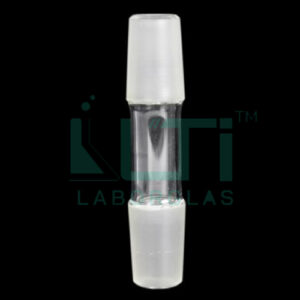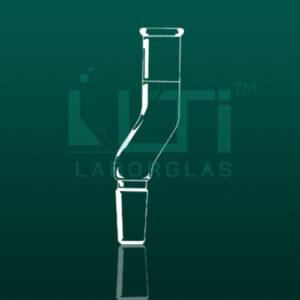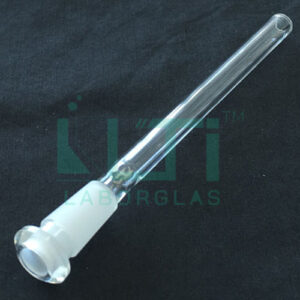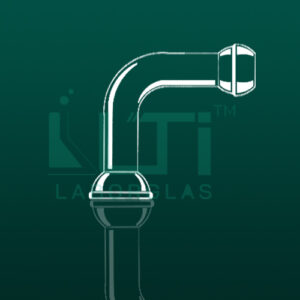- Drying tube is a tube like piece of apparatus used to keeping the vessel free of moisture, often ised in organic syntheses
- There is usually a standard joint for use in connecting the drying tube to a reaction flask.
- In use, the drying tube is filled with a rechargeable desiccant such as calcium chloride and the open end of drying tube is partially blocked
| PART No. | FEMALE SIZE | MALE SIZE | Pack(Qty) |
| 1960-19F19M | 19/22 | 19/22 | 10 |
Here are potential uses for a drying tube straight adapter in a laboratory setting:
- Moisture Removal:
- The primary purpose of a drying tube is to remove moisture or other volatile components from gases or air streams. It is commonly used to dry the gas passing through it.
- Protecting Sensitive Reagents:
- Drying tubes are often employed in experimental setups to protect sensitive reagents or reactions from moisture, which can interfere with the desired chemical processes.
- Air or Gas Inlet Protection:
- The drying tube straight adapter can be used to protect laboratory setups from ambient moisture when introducing air or gases into a system. This is particularly important in reactions sensitive to moisture.
- Solvent Drying:
- When working with solvents, especially those that are hygroscopic (absorb moisture from the air), a drying tube straight adapter can be used to ensure that the solvent remains dry and free of contaminants.
- Column Protection in Chromatography:
- In chromatography setups, a drying tube may be used to protect the stationary phase of the column from moisture, ensuring consistent and reliable separation of compounds.
- Instrumentation Protection:
- Drying tubes can be incorporated into the gas lines of analytical instruments, such as spectrometers or chromatographs, to prevent moisture from reaching sensitive components.
- Preventing Corrosion:
- In setups where metals are involved, such as reaction vessels or instrumentation, a drying tube can help prevent corrosion caused by moisture in the air.
- General Lab Use:
- The drying tube straight adapter may find application in various laboratory setups where the removal of moisture is critical to the success of an experiment.





